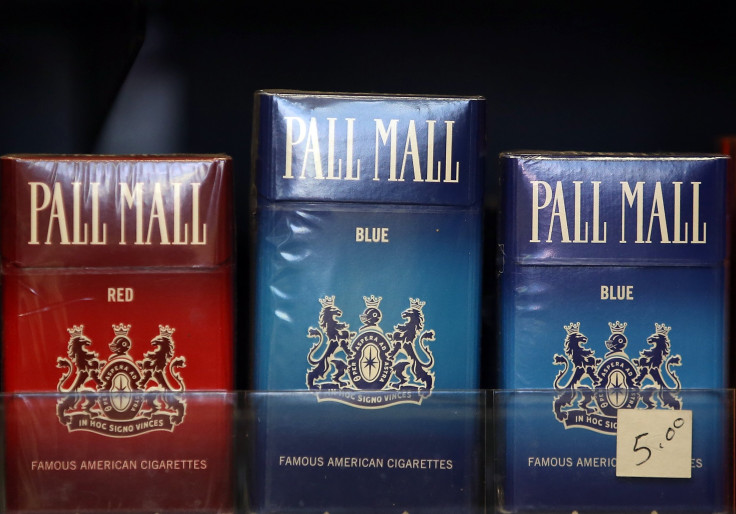FDA Orders Reynolds To Stop Sales Of Four Cigarette Brands

WASHINGTON (Reuters) - Reynolds American Inc can no longer sell Camel Crush bold and three other types of cigarettes in the United States, because the company has not shown they carry no greater health risk than similar products on the market before Feb. 15, 2007, regulators said on Tuesday.
The Food and Drug Administration move comes three weeks after the agency told Reynolds and two of its rivals that they could not claim their products are "natural" or "additive-free" without regulatory approval. Reynolds sells Natural American Spirit cigarettes through its subsidiary, Santa Fe Natural Tobacco Co. Two other companies were given similar warnings.
The FDA said Reynolds could no longer sell or distribute Camel Crush Bold, Pall Mall Deep Set Recessed Filter, Pall Mall Deep Set Recessed Filter Menthol and Vantage Tech 13 cigarettes. The agency concluded the products have different characteristics than the benchmark, or "predicate," products against which they were measured.
Reynolds was not immediately available for comment.
Under the 2009 Tobacco Control Act, the FDA provided tobacco makers with a grace period to submit applications to the FDA showing that newer products were no more dangerous than those on the market before February 2007. http://1.usa.gov/1Nuim58)
"These decisions were based on a rigorous, science-based review designed to protect the public from the harms caused by tobacco use," Mitch Zeller, director of the FDA's tobacco division said in a statement.
The FDA said Reynolds had failed to show that increased yields of harmful or potentially harmful constituents, higher levels of menthol or the addition of new ingredients in the currently marketed products compared to the predicate products, do not raise different public health questions.
In the case of Camel Crush Bold, the agency said, Reynolds had also failed to show that the addition of a menthol capsule in the filter did not affect consumer perception and use.
The FDA said it does not intend to enforce the ban for 30 days to allow retailers to get rid of their inventory.
(Reporting by Toni Clarke in Washington; Additional reporting by Rosmi Shaji in Bengaluru; Editing by Saumyadeb Chakrabarty and David Gregorio)



























